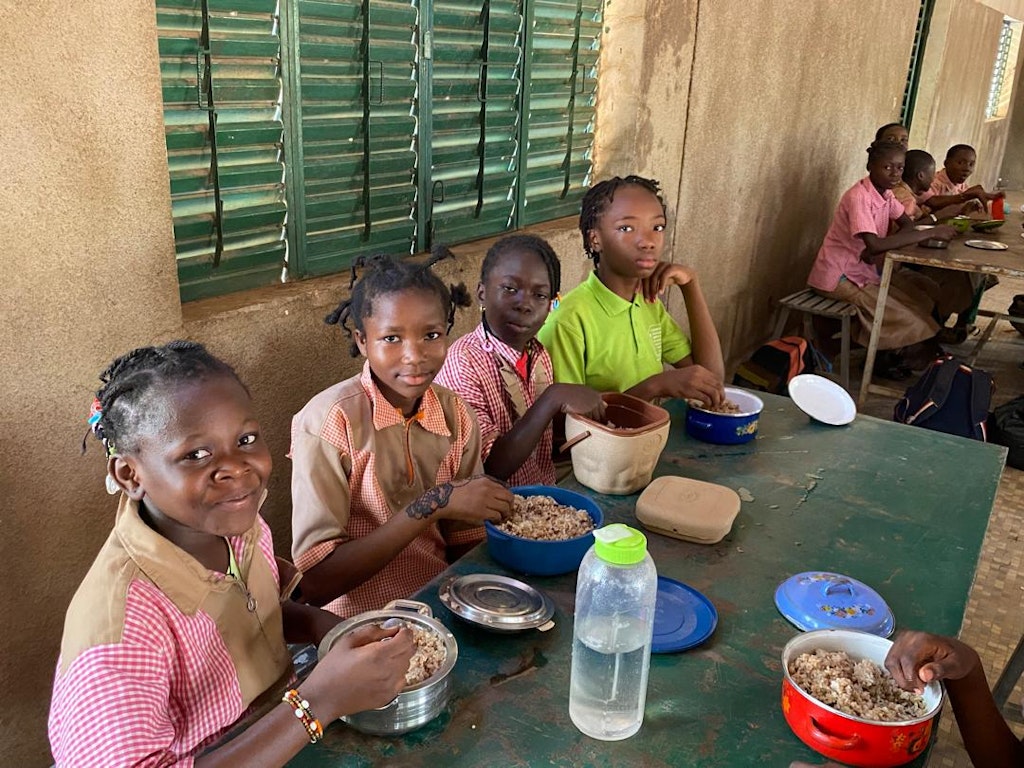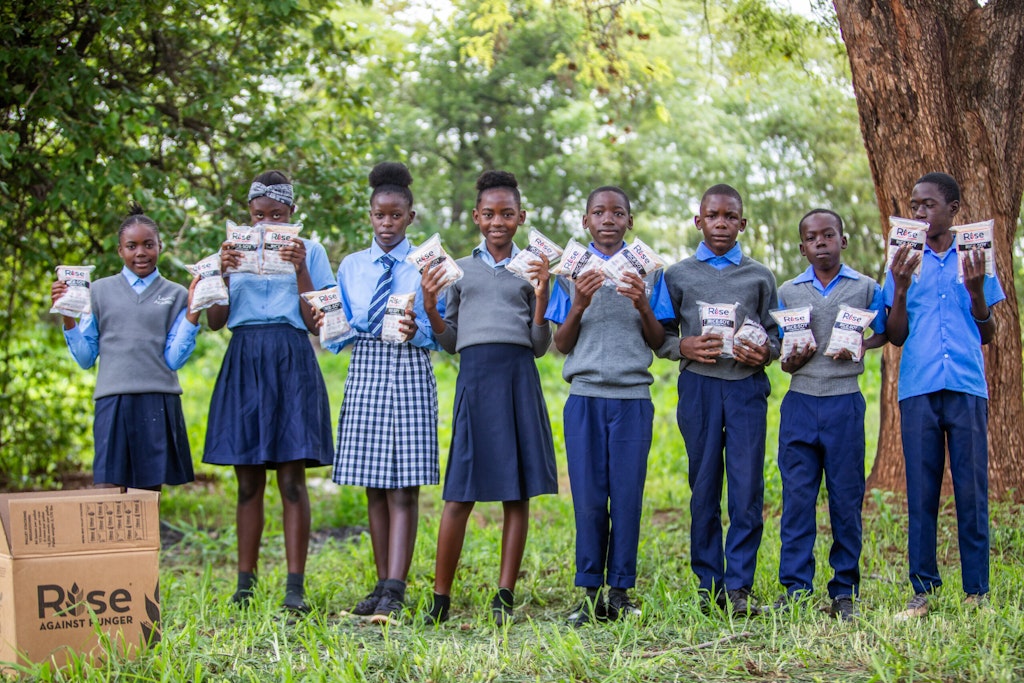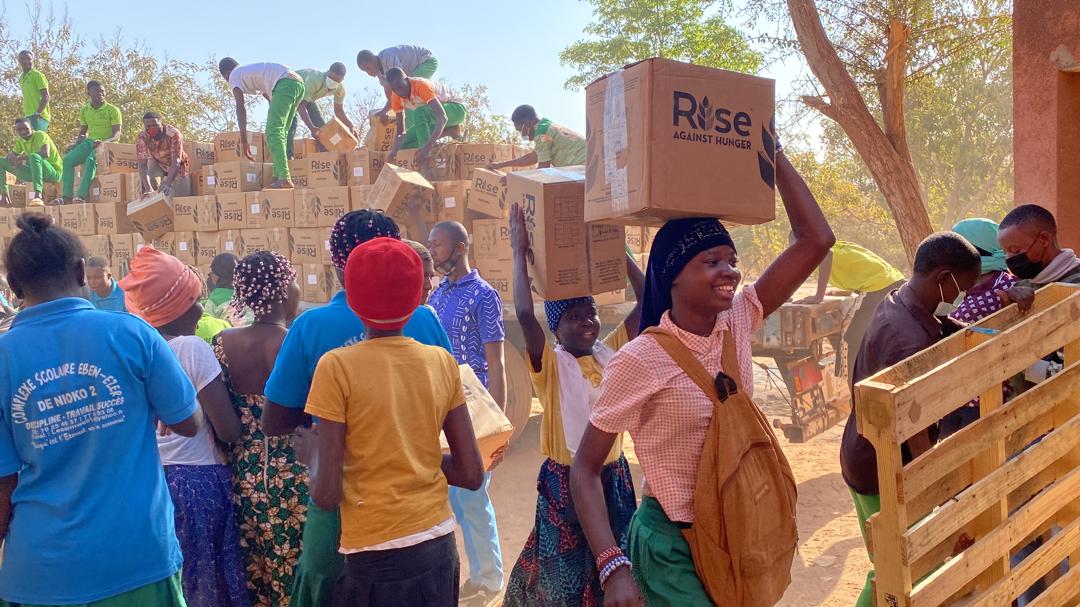Every year on June 16, people and organizations worldwide recognize Day of the African Child, an international holiday focused on bringing awareness to the importance of improving the quality of and access to education for all African children.
Quality education is inextricably linked to food security; when a child doesn’t have enough food to live a healthy life, their school attendance can suffer due to illness or necessity to help bring home income to their family. Hunger often makes it challenging to focus in class, and learning becomes more difficult. Rise Against Hunger is addressing this issue. A large percentage of Rise Against Hunger meals are distributed to children through school feeding programs in Africa and other regions across the globe. The meals not only support a child’s health and nutrition, but they also support their education. Studies have shown that when children receive adequate nutrition through school feeding programs, school attendance, enrollment and academic performance soar.
But in times of crisis, like political conflicts, droughts and more, wages and market systems are often disrupted, leading to breakdowns in access to food. This can further exacerbate challenges, heightening the critical need to support education and food security in affected communities. This has been the case in Burkina Faso, Burundi, Niger and Zambia.
As we shared in a blog a few months ago, we’re currently responding to emergencies in these four African countries by providing food and aid. And part of our response has included providing meals for school feeding programs, helping ensure that children can receive vital nutrition and quality education even during times of crisis. Keep reading to learn more about our emergency response efforts in these four countries, and how you can help.

Students at Eben Ezer Primary School in Burkina Faso eat Rise Against Hunger meals every day for lunch.
Burkina Faso
Political conflict, climate change and droughts have caused mass displacement and food insecurity in Burkina Faso. Millions are displaced, and 2.7 million people face hunger. Rise Against Hunger is working with in-country partner Hope for Burkina Futures to support communities near the capital city of Ouagadougou. There, 1,250 children receive Rise Against Hunger meals daily through feeding programs at schools, supporting children’s health and education. Academic performance has improved among the children served, and their education serves as a stepping stone toward more opportunities and bright futures. Families also receive weekly food assistance.
Burundi
Severe floods led to higher rates of poverty and food insecurity in Burundi last year. Working with partner Salesian Missions, Rise Against Hunger provides meals for school feeding programs to support 1,600 students in the country. With regular access to nutritious food, the students’ health and well-being have improved, and they can more easily focus on their education and extracurricular activities.
Niger
Political instability and climate change are major contributors to food insecurity in Niger, and this crisis has led to millions of people facing hunger. Rise Against Hunger works with KARMA to provide urgent food for vulnerable populations. Rise Against Hunger meals are distributed to internally displaced Nigeriens, Nigerian refugees and schoolchildren in regions affected by conflict and displacement. The meals provide critical nutrition for families and support access to education. Children can go to school knowing they’ll receive a hot, nutritious meal each day.

Students at Bauleni Legacy Academy, one of the schools in Zambia served by a school feeding program implemented by Rise Against Hunger and Family Legacy Missions.
Zambia
Severe drought in Zambia has led to higher rates of food insecurity across the country. Rise Against Hunger is addressing immediate needs by supporting school feeding programs, focusing especially on rural areas where food insecurity is widespread. Working with in-country partner Family Legacy Missions, nutritious meals are distributed to over 350 kindergarten to grade 7 students. Since the feeding programs began, the schools have reported increased attendance, improved academic performance and healthier students.
During times of crisis, food is a critical need for communities on the path to recovery. In honor of International Day of the African Child, will you help Rise Against Hunger continue responding to emergencies, nourishing lives and supporting education — both in Africa and around the world? Donate to our Global Emergency Relief Fund today.


